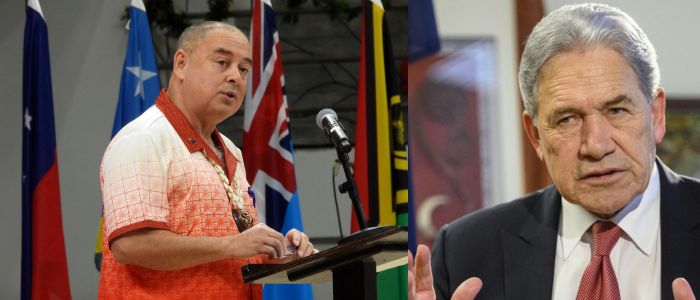The Cook Islands is self governing, but its military is handled by New Zealand, and its inhabitants carry New Zealand passports. Wellington has temporarily suspended any new financial assistance consideration until the Cook Islands government moves to restore trust and fulfills its obligations to consult New Zealand on agreements with foreign states capable of affecting shared interests.
The funding was only “paused,” the Cook Islands prime minister, Mark Brown, told Parliament, and he played down its significance. But New Zealand’s freeze could have an impact on critical areas like health, education and tourism, which all come under the aegis of a $200 million aid program that the country has been running for the last three years.
Deals with China prompt concern
News of the freeze, NZ$18.2 million, or about US$11 million, emerged when it appeared in a budget document and at a time when New Zealand’s prime minister, Christopher Luxon, is visiting China and hoping to sit down with President Xi Jinping. China has previously justified its deepening relationship with the Cook Islands, saying it is not trying to up the ante against Wellington.
New Zealand was worried after PM Brown inked a number of deals with China in February. Although the agreements didn't create official security relationships, they also paved the way for more Chinese involvement through funding infrastructure and providing scholarships for study in the country. The terms of the agreements were not fully disclosed.
New Zealand's Public Accounts Committee in the Cook Islands, too, also sounded the alarm over a NZ$10 million funding shortfall, which is also the first time the financial noose has officially been acknowledged. Brown’s own administration is seeking to develop deep sea mining in his vast exclusive economic zone, another factor in the regards from foreign partners.
The tensions of a longtime partnership
The Cook Islands has been in free association with New Zealand for almost 60 years, and its leaders are required to consult with Wellington on international treaties that might impact joint national interests. Recent agreements with China became a big test of this relationship.
New Zealand officials said the agreements pointed to “a gap in understanding” about what was expected of the bilateral relationship. The move to pause funding is a direct result of what is perceived as this breakdown in trust and communication.
Various regional agreements with China are designed to extend cooperation, not replace ties to New Zealand and Australia, Brown told Parliament.
But word of the China deals prompted protests in the Cook Islands capital, Avarua.
Brown also highlighted Luxon’s trip to China, and his announcements of trade deals and visa changes for Chinese visitors, saying he anticipated those accords to be “no threat to the security of Cook Islands” even though he had not been briefed on the details of them by his own government.
Some analysts have said the Cook Islands is taking a distant strategic gamble by moving closer to China — which has been trying to exert its influence in the Pacific.
World

New Zealand Freezes Cook Islands Funds Over China Deals

New Zealand has suspended millions of dollars in aid to the Cook Islands in the wake of several deals the Pacific island nation signed with China in the last few days. The freeze was prompted by the “breadth and content” of those agreements, released in July, being seen to bypass the consultation that is supposed to occur under the two countries’ centuries-old constitutional relationship, said officials from the office of New Zealand Foreign Minister Winston Peters.















